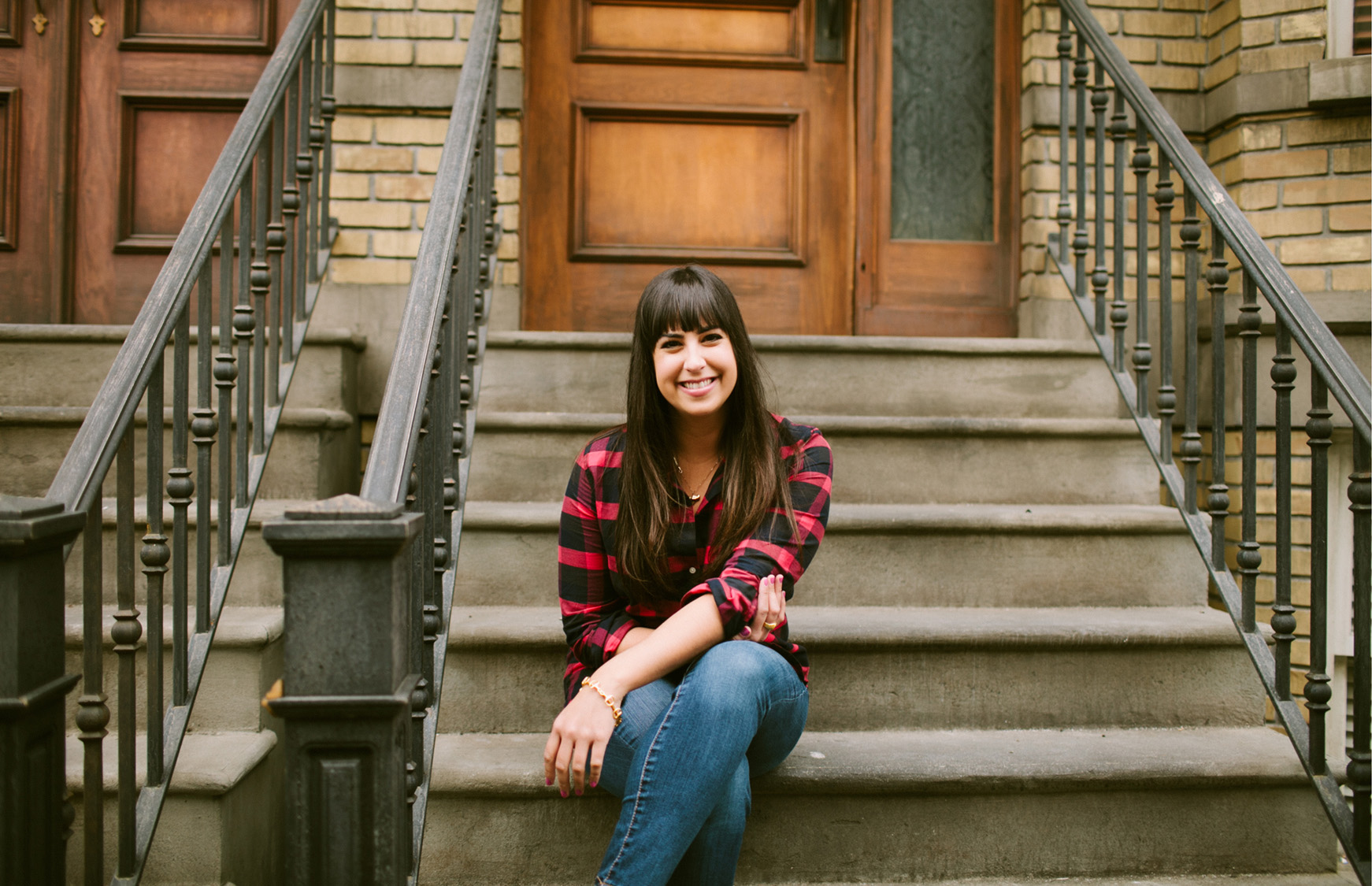Does cracking jokes, munching on yummy snacks, having dance parties and imagining new storylines for your favorite shows sound like the type of thing you do with your friends during your downtime? Well, for Joanna Quraishi, it’s what she does for a living! But don’t be fooled by the perks of Joanna’s job as a TV writer (she’s now working for the show Weird Loners, which premiers March 31st on Fox). As we discovered, TV writers work just as hard as (if not more than) the rest of us, putting in long hours, sometimes staying at the office well into the night.
This funny girl’s story starts at Florida State University, where she received a B.A. in creative writing. While there, Joanna’s college mentor told her that becoming a successful writer would be like trying to escape from jail with a spoon—an analogy that she sought to push through while dealing with long, exhausting days and demanding work hours. Her Florida State studies taught her a lot about storytelling, character development and plot structure, skills that all proved to be essential in her career journey.
Post-college, Joanna gained experience and learned about the world of TV through stints at Jimmy Kimmel Live and the Ellen DeGeneres Show. A few of the “just another day on the job” stories that Joanna can boast include almost bumping into The Artist Formerly Known as Prince and audience scare tactics while wearing a spandex unitard. Today, Joanna has achieved her dream of writing for a scripted TV show thanks to her willingness to put in the hours as well as her perseverance, even when exhaustion ruled—and, as we learned, she’s nowhere near done yet!
Her Starting Point
You graduated from Florida State University with a degree in English (Creative Writing). How did you transfer those skills into a career as a TV writer?
My concentration was in short fiction, and while structurally very different from TV writing, learning about character and plot and mining the world around me for material was definitely something I learned there that transferred over. (The actual structure of writing a script was something I didn’t learn until I was in LA—several TV writers I knew and looked up to were very generous and passed along scripts, which I read and reread and kind of dissected, and learned the structure that way.)
I also think the practice of having my work read and critiqued by other people in the fiction workshops I took in undergraduate helped prepare me to be less self-conscious about letting others read my stuff and less precious about the editing process.
During college, you interned for Jimmy Kimmel Live. What drew you to working for a late-night comedy show, and how did you land the internship?
Growing up, I was obsessed with Saturday Night Live and was constantly reenacting the sketches and bits for anyone who would watch. That said, I don’t think I fully made the connection until much later that it was someone’s actual full-time job to write the stuff I watched and worshipped.
I landed the internship because a friend of my stepmom’s was a Co-Executive Producer on the Man Show and I’d come to California in high school for a singing program one summer (fun fact) and he told me I could come intern for him when I turned 21. So I reached out my junior year of college, at which point he was a Co-EP at Kimmel.
Three days into my internship, the Field P.A. got promoted and I’d gone on a shoot with them and not totally messed things up, so they hired me to day play in the field department on the days I wasn’t interning. The field department basically shoots all of the stuff that isn’t live on the show, so I was getting to go on location every day and watch the writers come up with jokes on the fly, and I was in heaven. It was really the first time I felt like I could maybe pursue a career writing for TV.
So it’s true that “who you know” can absolutely help you get a foot in the door or even swing those doors wide open, but it’s up to you to prove yourself once you're inside.
What was the most valuable lesson you learned while working for The Ellen DeGeneres Show as a writers’ assistant after college? What was your favorite experience throughout the three years you were there?
Working at Ellen taught me so many things—including how to be flexible and roll with the punches because it was so fast-paced and everyday brought something different. There would be days where three hours before the show, the executive producers would go, “Hey, you’re gonna put on this spandex unitard and do a bit live on the show where Ellen’s gonna talk to you in an earpiece and tell you when to jump out and scare people,” and you just kind of adapt and go, “Okay, I wish I hadn’t eaten pizza for lunch.” It really was like getting my production sea legs, because everything moves at such a fast pace and I got great hands-on experience doing so many different things.
It’s hard to name a single favorite experience, because there were many memorable ones, but probably the first time I got a joke into the monologue and heard the audience laugh at it. It was the wildest thing, standing in the control room at the top of show and watching/hearing people react to something I’d thought was funny and pitched to the writers. A close second would probably be meeting Steve Martin, or the time I nearly bulldozed Prince as I was running out of Ellen’s dressing room carrying my laptop to proofread the teleprompter script before the show started (sorry, Prince. Or should I say "Sorry, The Artist Formerly Known As—"? I can’t keep up.)
We noticed that you worked on talk shows for a number of years before making the switch to scripted television. How did you know that you wanted to focus on scripted shows? Talk to us about that transition.
I knew early after moving out here that I wanted to ultimately get into scripted, but I landed the job at Ellen thanks to the Kimmel folks being lovely and sending my resume over to Ellen for me when I moved to LA after graduation. And I’m so glad I had that experience because it really prepared me for pretty much anything.
But it is a tough transition to get into scripted. I left Ellen after three seasons (two of which were spent as a writers’ assistant), but then I had the hardest time getting a job as a show runner’s assistant or a writers’ assistant on a scripted show. It was so frustrating, because I kept losing out to kids who had agency experience, and I’m over here like, “Wait, I was a writers’ assistant for two years! How does that not translate?!
The transition, in reality, was this: I spent 13 months after leaving Ellen working odd jobs, trying to gain more life experience since I’d only worked on a studio lot since I’d moved to LA at age 22, and spent the time writing and putting together my writing packet and interviewing. I finally wound up taking a job at CAA as an assistant, where I did 10 months’ hard time before finally making the jump into scripted (as a script coordinator on DON’T TRUST THE B---- IN APARTMENT 23). At the time, I didn’t love it, but it was the best thing I could’ve ever done. Working at an agency was like getting a masters’ degree in the business side of TV. (Plus it helped me land my representation…my old boss is now my agent.)
Her Big Break
You now write for the TV show Weird Loners, which premieres in March. How do you think writing for a brand new show differs from a series that’s already established?
Definitely the snack selection is better on established shows because their snack budget is bigger. (Just kidding. Mostly.) I think writing for a brand new show is really fun and exciting because you’re kind of figuring out the characters in real time and there aren’t as many parameters for what they can and can’t do. I also may be totally wrong about that.
Securing a job in the entertainment industry, especially as a writer, is tough. Were there any moments in your career that were especially challenging? How did you overcome them?
There were many moments that were challenging. I think the assistant track can be really tough and a bit thankless at times, and so there’s almost a natural selection element to the industry. The people who can’t hack it, or don’t want to, basically live below the poverty line and get someone’s very specific (borderline obnoxious) coffee order every day say screw this and go back to the Midwest or wherever. Perseverance is key. There were so many nights I’d come home from a 13-hour workday and the last thing I wanted to do what work on my own stuff. But then you’re left grappling with whether to give in to the immediate exhaustion or to keep at it, and get closer to what you ultimately want.
My college mentor, Julianna Baggott, used to say it was like being a prisoner with a spoon—scraping a little bit at a time, digging yourself out eventually. I’ve probably butchered the actual analogy she used, but it was the thing I repeated to myself over and over again in the seven years it took to get my first staff-writing job.
What is an average day like for you? Are you constantly writing and coming up with new plot ideas, or are there other parts of the job we might not be so familiar with?
Right now I’m on hiatus (we finished shooting season one of Weird Loners in November), so my “average day” is different than an average day when I’m on the show. I really love when we’re in the room because I thrive on structure, so I try to structure my hiatus days so I’m productive and happy.
When we’re in the writers’ room, an average day is like this: Get up, go to Pop Physique for a 7:00 a.m. class or a jog at the Silverlake Reservoir, come home and shower/get ready like a maniac, shlep to Fox—the writers’ room starts at 10:00 a.m., so get there a few minutes early to get a cup of coffee/rummage through the office kitchen for something that passes for “breakfast.” We work until about 1:00 p.m., then eat lunch (usually in the writers’ room), take a little post-lunch walk and work until 6:00 p.m. on an early day, sometimes 9:00 p.m. on a late day—though there have been much later nights! (My friends who are on shows that work regularly until 2:00 a.m. are probably gonna be pissed reading this.)
The job itself is less actual writing like you might imagine and more sitting around a conference room table pitching ideas and jokes. Someone described being in a writers’ room as “sitting in a room with funny people having funny conversations about hypothetical situations” and that pretty much sums it up. Whoever is assigned to write that particular episode will go off and write the outline, and once it’s approved by the studio and network, they’ll go off and write the first draft of the script. But the initial story breaking process and the subsequent rewrites until it goes into production is very collaborative.
Parts of the job you might not expect include semi-regular dance parties. I was in a writers' room with more women than men, so after we finally broke a particularly challenging story, we celebrated by having a Beyoncé-fueled dance party.
Where do you get your inspiration during the writing process? Does it differ when you’re writing for a talk show versus a scripted comedy?
We draw a lot from personal experience during the writing process, and I think part of the reason a writers’ room can really feel like a family is because nothing is off-limits. I’ve told stories I would never tell my parents to my co-workers for a story’s sake.
On a talk show, I’d say you draw more from topical stuff and news stories since it’s a daily show, rather than an episode that is going to not even see the light of day for months after you film it. But as far as evergreen ideas, just from paying attention to things around you, from what you read and see and just generally what strikes you as funny. (Is there a way to answer this question without sounding douchy? I feel a little douchy.)
Her Perspective
We imagine that your role as a writer is all consuming, especially while writing for weekly—or even daily—shows. How do you make time for relaxation and hanging out with friends and family?
That’s what weekends are for! I consider myself a social person and nothing brings me more joy than laughing with a friend over a good glass of wine or a delicious meal. But I find myself kind of hermit-ing during the workweek because it is mentally exhausting and demanding and often, long days. Luckily, I have amazing, understanding friends—and my friends are similarly crazy-busy because they’re all working super hard/kicking ass and doing really cool stuff in their careers, so everyone has some understanding of scheduling demands.
What is the best piece of advice that you could offer to someone who is looking to break into the world of television writing?
Read and watch everything. I think reading a bunch of scripts is more useful than reading a book about writing. And actually write. I’ve heard so many people say they want to write, but when you ask to read something, they don’t have any material to show. Writers write. So do the work, and do it on the regular so you can get the bad writing out of your system.
Also, set goals and manage your expectations. You’re most likely not going to get hired out of obscurity to write on your favorite TV show because Judd Apatow happened to see your hilarious tweet about sandwiches. Put in the time, do the unglamorous assistant jobs, learn everything you can along the way.
What is your favorite part about writing for television? Least favorite?
The snacks, hands down. Writers’ rooms have the best snacks.
Gosh, how do I even answer that? I get to sit around a room with a bunch of funny people and I get to laugh all day long. I don’t know in what other job you get to do that. I really love the collaborative, social aspect of being in a writers’ room.
My least favorite is the unstable aspect. I’m on hiatus right now and we won’t know for several months if our show is picked up. So it’s tough to go for several months at a time without having a workplace to show up at every day. The positive about that is I’m getting to work on my own stuff in the downtime, but there is definitely a lack of stability and a sense of cobbling things together unless you happen to be working on a hit show (and even those get cancelled).
And finally, what do you wake up looking forward to? What’s next for your career?
It may sound cheeseball, but I legitimately wake up looking forward to what I’m working on—sometimes I get this overwhelming feeling like I just want to read and write all the things, and even typing that, I don’t know how to convey what I mean without feeling like I should be twirling around in the alps getting my Maria von Trapp on.
As far as the next step in my career, I’m developing an idea to pitch in the cable realm, and am excitedly awaiting the series premiere of Weird Loners (March 31st, 9:30 p.m. on Fox, after “New Girl”). And hoping we get picked up for a second season and get to write more of this show that I really, really love.
You May Also Like
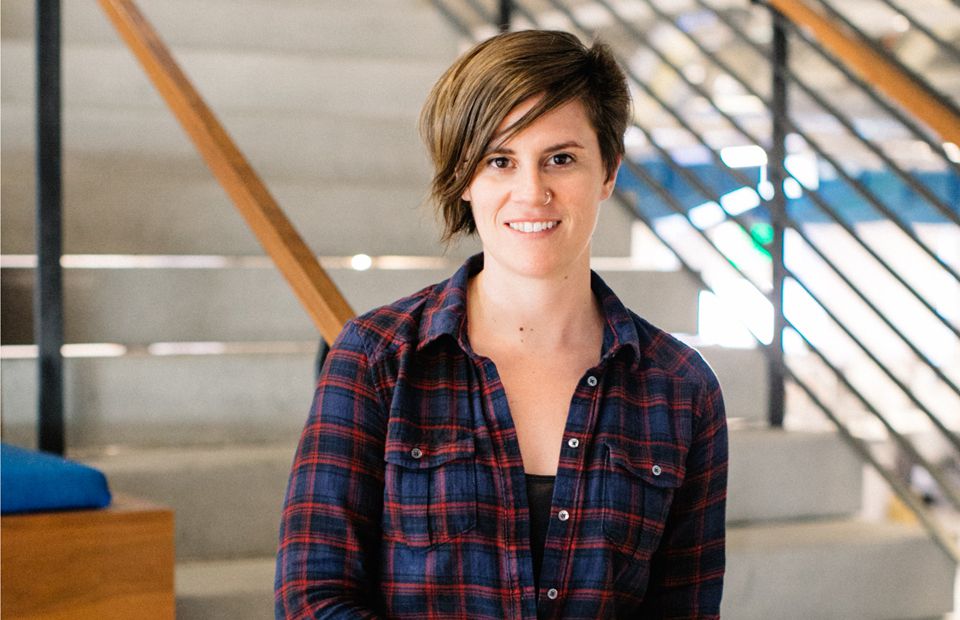
Media
How to Use Positive Reinforcement at Work—and Other Advice from a Pandora PM
"My advice to anyone who wants to get into product management is: check your ego at the door."
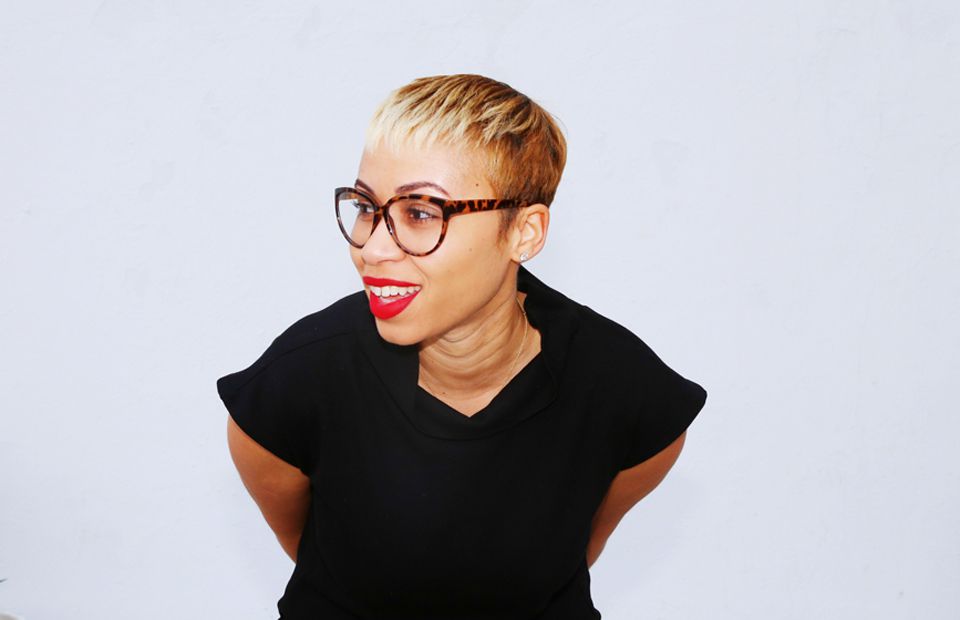
Media, Communications + Public Relations
How to Take Risks, Make a Switch, and Find a Career You Love—From a Woman Who's Done It 4 Times
Making your wildest dreams come true starts with understanding yourself—and Ahyiana Angel can help.
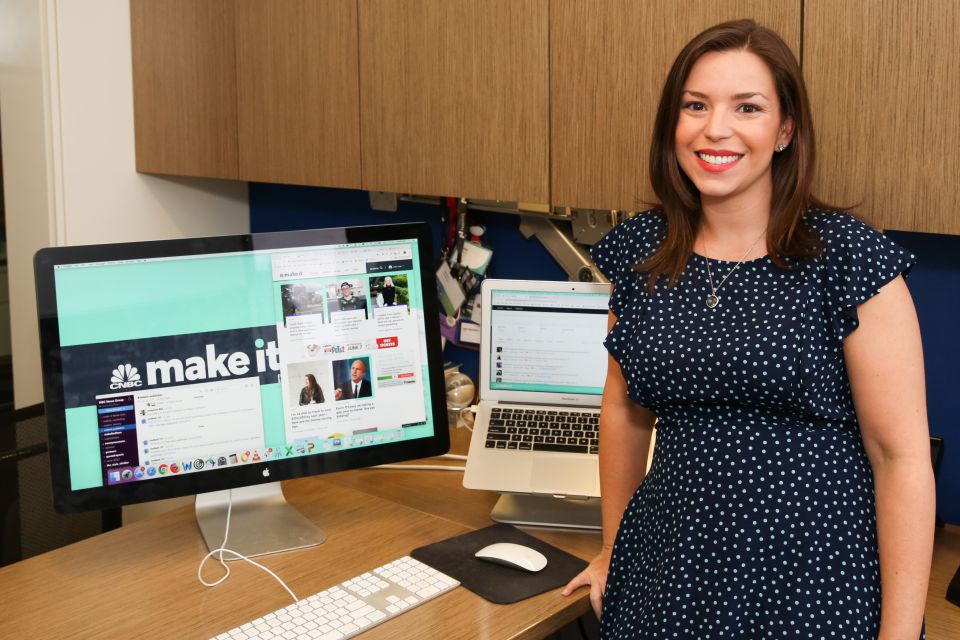
Communications + Public Relations
Creating Content That Empowers Audiences with CNBC's Digital VP and Managing Editor
This week, we interviewed Jenna Goudreau, the VP and managing editor of CNBC Digital. Let's learn how she keeps her powerhouse content creation machine going.
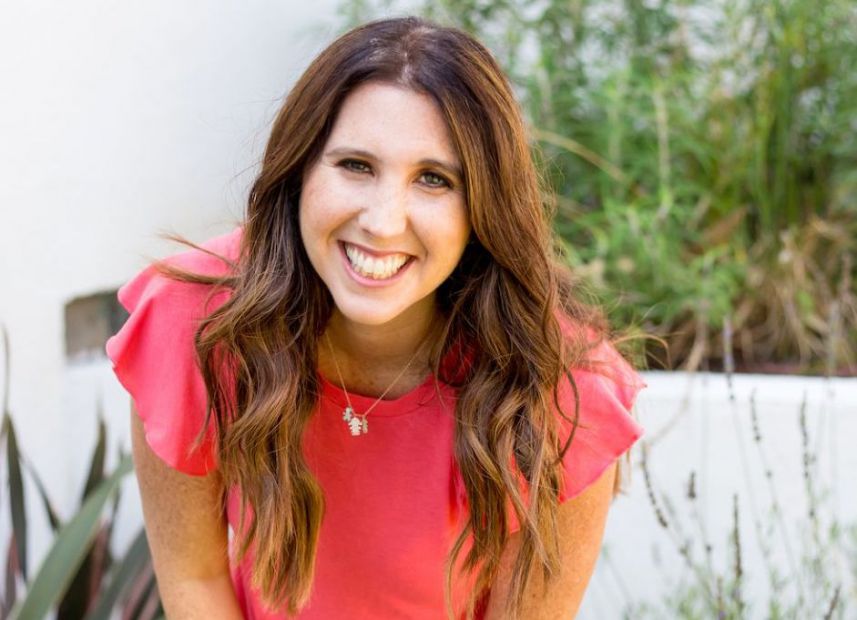
Entertainment
Working Creatively From Home with Cathy Heller
Cathy Heller is a singer, songwriter, entrepreneur, mother—and now, an author. Determined to lift others up to the "happiest versions of themselves," this queen of the hyphenated job title, leads by example. She shared how to build a fulfilling career in a creative field—all while working from home.
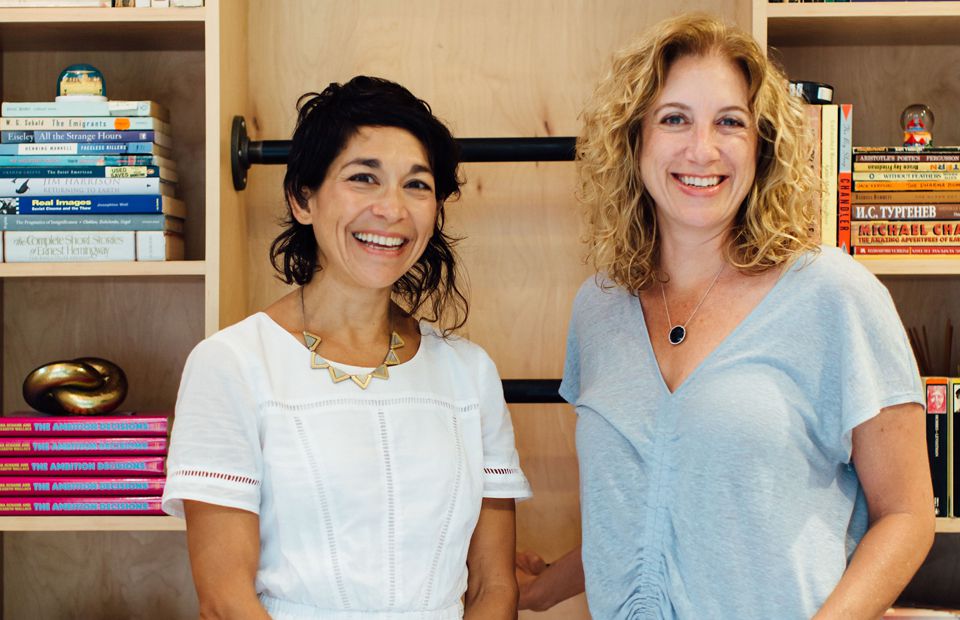
Media
Women, Work, and What It's Like to Write With Your Best Friend—From the Authors of The Ambition Decisions
"We should all give ourselves permission to challenge the things we think can’t be challenged."
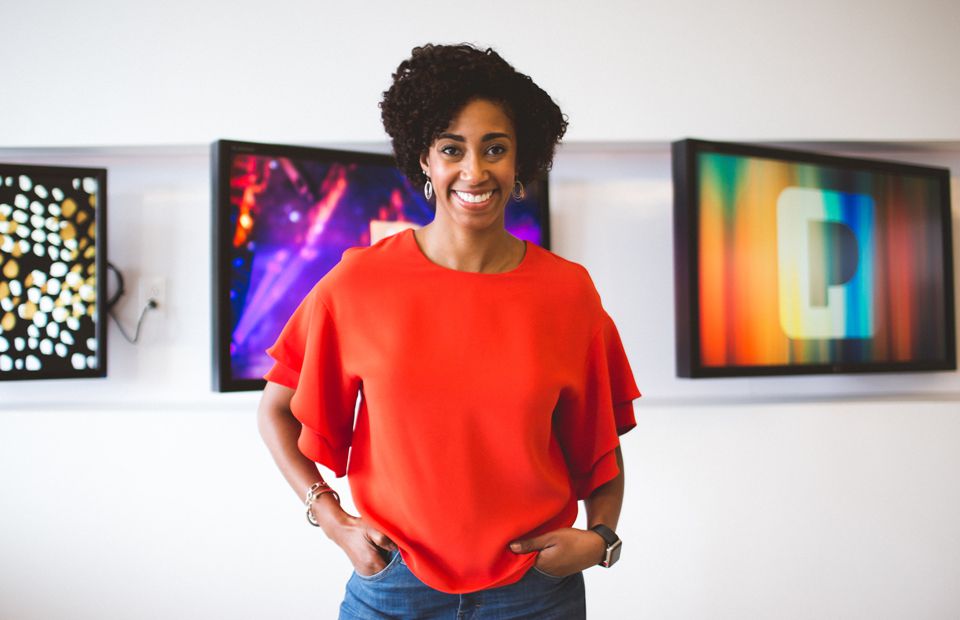
Media
A Director at Pandora on Staying Present, Celebrating Others, and Learning From Failure
"Share your wins, but most importantly, share what your growth areas are, share when you fail, share how you bounced back."
Get the Best Career Advice Delivered To Your Inbox
Join our newsletter to stay in the loop.
